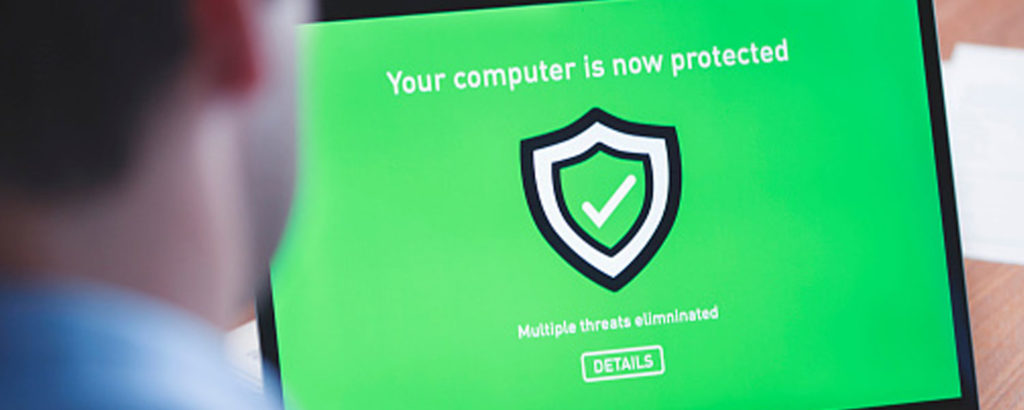While working from home, both corporate and personal privacy and security is a significant consideration. Technology companies, despite so many old and new regulations, have innovative ways to use our data. Therefore, it is essential to explore the elements that should be considered to assist with working more privately. When working from a remote location, such as at home, adhering to certain measures can increase security and ensure your privacy by protecting confidential information.
Potential challenges and risks could be associated with allowing employees to work from homes, including those related to security, privacy, and the potential for abuse. Through implementing the necessary measures, companies and employees can mitigate privacy and security risks related to working remotely.

Secure remote working from home: Nine considerations
-
The home is now the corporate network
Inadvertently, corporate networks have been extended to our homes resulting in no boundaries as we work from homes — also coffee shops and other dynamic locations that are using to work remotely. This means that the old way of working is no longer safe; it’s no longer enough to secure users behind the corporate firewall. To that end, a data-centric, application-centric, or device-centric (or combination of the three) approach is required. A combination of these approaches would be most beneficial for an organization’s defense strategy when navigating a more secure means of remote working. Ensuring the selection of the best-fit model for the organization would be key to secure remote working going forward.
-
Expand your cybersecurity policy to include a work from home security strategy
CISOs and IT managers can easily integrate a work from home security strategy into the official employee cybersecurity policy. If the company’s confidentiality and information security policies do not consider work from home situations, they should be updated accordingly. These policies should be enforced through the use of technical and administrative controls. Through working closely with managers, it can help to implement the policies founded on technical or administrative oversight, which would resolve safety concerns when employees work from home.
-
Technology considerations for secure home working
Virtual private networks or VPNs are now commonly used by companies whose employees need to access the company’s infrastructure when working remotely. The use of VPNs can be an integral part of online security, both when working from home or from the office (work) – whenever working over a shared WIFI network. It is important to note, though, that VPN services that are provided for data protection usually only protect the data of the VPN provider and not the data destination. Additionally, it would not be suitable for protecting remote access.
-
Creating rules for smart devices

It’s great that the proliferation of smart devices — phones, laptops, and productivity applications have made it so easy for employees to work from anywhere! However, time and thought should go into creating work rules to set employees up for success (and not failure) when using these devices remotely.
Remotely, employees can work irregular hours and use their devices in a way that would make it challenging to distinguish between monitoring work and the monitoring of employee’s private lives, primarily when employees use their personal devices for work functions.
Moreover, if data is compromised while an employee works from home, it can be challenging to determine how and when it occurred. So, careful consideration should be given to the rules that could be applied to resolve issues regarding this aspect of remote working.
-
Accessing personal information from home
Not all organizations and employees access sensitive personal information while working from home. Still, employers should remind remote employees that their privacy policies and procedures will continue to apply when working from home, even in cases where employees are used to working from home with sensitive information. It is advisable to review policies and procedures to ensure that personal data remains secure at all times. Whether accessing personal data or not, all employees should be comprehensively trained on how to keep data safe while working from home.

-
Considerations for a global employee base
For companies that employ part-time or full-time employees from other jurisdictions other than their own country, precautions to limit the security risks that this set up might cause for employees who work from home should be taken. Expected risks would include security issues and the element of each party facing its own particular problems and compliance responsibilities.
-
Monitoring and setting procedures to reduce risk
To help reduce the risks of remote working, setting procedures that employees must follow when working from home is essential. Practices such as using VPNs, using antimalware, keeping software patched and up to date, and the use of tools that continuously identifies the individual’s access to the data and systems being accessed remotely. Furthermore, the use of platforms that can monitor behavior to ensure the risk of rogue actions can be mitigated.
-
Working from home: A personal viewpoint
From the perspective of an employee, be careful how your personal information is being handled by the company you have chosen to work for. Before making any decision concerning any company’s practices, you should review its terms of service. This should include the company and the tools that you use to perform the job for that company.
Regarding the tools you use, it’s usually the case that the terms of service can often be vague, especially on data privacy issues. Be sure to learn more about their policies and practices regarding data collection. You should also read through the privacy policy, if one is available, and learn how they will use that information. It would help if you, too, were sure to check their terms of service for the minimum number of days that they are allowed to keep personal data on yourself. This will protect you in the long run and help you be more private. It is important to remember that privacy remains your right.
-
Home security system

Something else to consider when working from home is the benefit of setting up your own systems. They can protect against all types of threats, including identity theft. These technical systems work to deter criminals and offer protection from logical and data breach damage caused by hackers. The software can monitor any suspicious activity around your home network and computers, which are now the target. By taking the steps necessary to protect yourself from identity theft, phishing, and network breaches while you work from home, you can ensure that you, your family, and the company you work for are secure from any risks.
It’s easy to forget security protocols when working away from the office
Security measures are often a second thought when working from home and can be easily ignored and forgotten. Moreover, it’s not as easy to enforce secure working practices with at-home workers as it is with in-office workers.
From an employer perspective, when employees are working from home and reeling awkwardly through the current crisis, it’s fundamental to remember the importance of security and to identify, monitor, and examine the process being used from homes to inhibit the potential security risks.
When working in your own home environment, always be aware of the privacy implications of remote working and your right to privacy. Your right to privacy remains no matter where you find yourself working.
Featured image: Shutterstock



